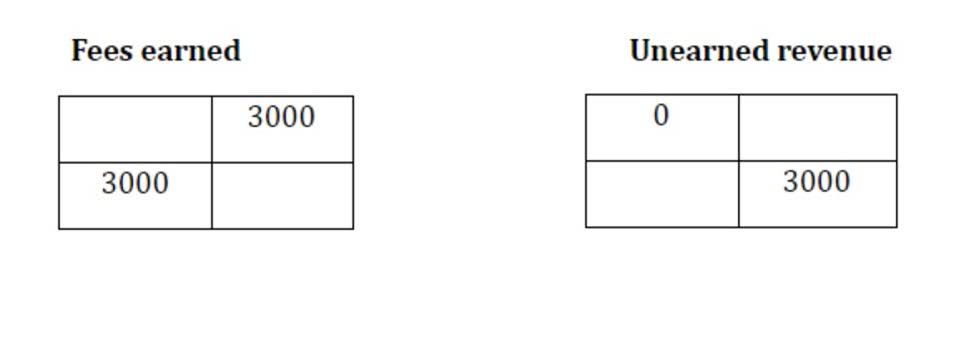
Blockchain technology addresses the issue of lack of transparency in traditional accounting systems. Conventional accounting practices often involve multiple intermediaries and complex processes that can obscure the true financial state of an organization. Blockchain’s decentralized ledger ensures that all transactions are visible to authorized parties, enhancing transparency and trust. Since all participants in a blockchain network have access to the same data, it becomes easier to track and audit transactions. This shared ledger system ensures that all entries are consistent and verifiable, which can significantly streamline the auditing process and improve compliance with regulatory standards.

Blockchain Decentralization
For accounting, this process revolutionizes the way transactions are recorded and verified. Each entry in the blockchain is a transaction involving assets, liabilities, or equity, creating a comprehensive digital audit trail. As these transactions are verified and time-stamped, the need for external audits may decrease, as auditors can directly access and analyze the Budgeting for Nonprofits immutable blockchain records. Blockchain’s inherent transparency and immutability align well with the core principles of auditing. Every transaction recorded on the blockchain is time-stamped, traceable, and available for all authorized parties to access.
Power-intensive systems
For now, the benefits are likely being oversold, while the costs and difficulty of implementation are likely being undersold. With accounting systems on the blockchain, artificial intelligence (AI), and automated processes, it is possible to cut down costs such as what is needed to reconcile records and auditing. Most of the tasks can be automated using smart contracts and machine learning on the blockchain. Also, mistakes and fraud are avoided as the blockchain is a neutral source of immutable data in a triple entry arrangement.
Greater security

This capability aids compliance with regulations such as the Dodd-Frank Act and supports internal governance by identifying discrepancies or anomalies early. Real-time financial reporting is reshaping how businesses monitor and manage their financial health. By leveraging blockchain, companies can access up-to-date financial data, enabling informed decision-making and agile responses to market changes. This is particularly valuable in fast-paced industries like technology and finance, where timely insights provide a competitive edge.

Regulatory News
- These contracts also ensure regulatory compliance by embedding rules within their code, aligning with frameworks like IFRS and GAAP.
- Each entry in the blockchain is a transaction involving assets, liabilities, or equity, creating a comprehensive digital audit trail.
- This integration ensures that all transactions are recorded in real-time, improving accuracy and efficiency.
- These fees should be recorded as part of the cost of goods sold or as operating expenses, depending on their nature and applicable accounting standards.
- Real-time financial reporting is reshaping how businesses monitor and manage their financial health.
- Understanding blockchain protocols and market dynamics is crucial for optimizing transaction costs.
Blockchain technology is revolutionizing accounting by significantly enhancing transparency. Each transaction recorded on a blockchain is immutable and time-stamped, making it easier to track and verify financial data. This level of transparency reduces the risk of fraud and errors, ensuring that all stakeholders have access to accurate and reliable information. Blockchain blockchain in accounting is revolutionizing financial auditing with its decentralized and immutable ledger system, enabling auditors to verify transactions with exceptional accuracy and speed.
The immutable nature of blockchain records prevents unauthorized alterations, ensuring the integrity of financial data. This feature is particularly beneficial for auditing purposes, as auditors can trace every transaction back to its origin. Consequently, the risk of fraud is significantly reduced, fostering a more transparent financial environment. This chain of transactions creates a secure and verifiable record of all financial activities. For the accounting industry, this heightened security reduces the risk of data breaches and ensures that sensitive financial information remains confidential.
- For instance, in a supply chain, a smart contract can automatically release payment once goods are delivered and verified, improving efficiency.
- With accounting systems on the blockchain, artificial intelligence (AI), and automated processes, it is possible to cut down costs such as what is needed to reconcile records and auditing.
- Unlike traditional centralized systems, where a single entity controls the ledger, blockchain operates through a consensus mechanism among participants.
- This decentralization enhances security and trust among all stakeholders, as the data is distributed across multiple nodes.
Blockchain Implementation in Accounting & the Role of the Accountants
- Ensuring compliance with AML and KYC regulations is critical to prevent illicit activities and maintain the integrity of financial systems.
- The technology’s transparency empowers auditors to trace transactions and verify records independently.
- Blockchain eliminates the need for separate ledgers maintained by different parties, as all participants share the same ledger.
- To comprehend the impact of blockchain on accounting, it’s essential to grasp the fundamentals of traditional accounting methods.
- After a block has been added to the end of the blockchain, previous blocks cannot be altered.
It’s immutability and decentralized nature make it unique, but its function of recording transactions makes it familiar to those in the accountancy profession. Developing professional knowledge and understanding of this emerging technology and its applications will be crucial to ensuring the profession’s relevance and future readiness. Blockchain reshapes trust in financial transactions by enhancing transparency. Its open and immutable ledger ensures all parties involved have access to the same data, reducing discrepancies and fraud. This transparency is particularly impactful in industries like banking and supply chain management, where blockchain can track goods and funds movement precisely. Interoperable blockchains will facilitate seamless data sharing among organizations, fostering collaborative ecosystems and standardized practices.

Executing Smart Contracts

However, successful implementation requires careful consideration of factors such as regulatory compliance, data privacy, and the integration of blockchain technology with existing accounting processes. Ultimately, blockchain accounting empowers participants with accurate, tamper-proof records and fosters trust among stakeholders in intricate supply chain networks. Blockchain’s transparency, coupled with its cryptographic verification mechanisms, simplifies the verification of financial records. Auditors can independently and efficiently validate transactions and financial data, reducing the time and resources required for audits. This ease of verification not only enhances audit efficiency but also strengthens compliance efforts and fosters trust in financial reporting accuracy. Blockchain’s ability to create a secure, shared, and synchronized digital record of transactions means that all parties involved in a financial transaction can access the same information in real-time.
Data Privacy Concerns
Blockchain technology is a decentralized ledger system that records transactions across multiple computers in a way that ensures the data’s integrity and security. Each transaction is grouped into a block and linked to the previous one, forming a chain. This structure makes it nearly impossible to alter past data without changing all subsequent blocks, providing a high level of transparency and immutability. The adoption of blockchain in accounting also streamlines processes by automating bookkeeping tasks that traditionally required significant manual effort. Smart contracts, which are self-executing contracts with the terms directly written into code, can automatically enforce and verify the terms of agreements.